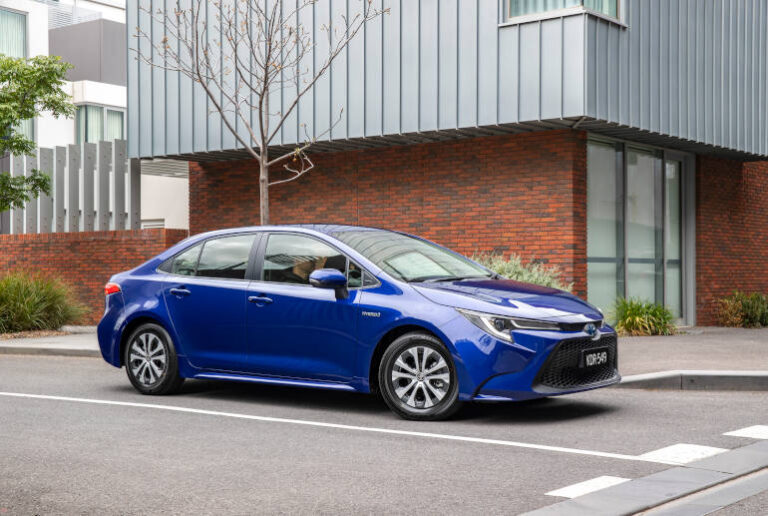The Toyota Corolla has long been a cornerstone in Australian fleet management, celebrated for its reliability, affordability, and strong safety credentials. However, with the Australasian New Car Assessment Program (ANCAP) safety rating for the Corolla set to expire for vehicles built from January 1, 2025, fleet managers face critical decisions, especially those with policies mandating a five-star safety rating. What are the implications of this expiry? And, what alternative options are available to fleet managers?
Understanding ANCAP Rating Expiry
ANCAP safety ratings are valid for six years from the date of assessment. After this period, the rating expires, and the vehicle is considered unrated, regardless of its safety features. This policy ensures that safety ratings reflect current standards and technologies. For fleet managers, this means that Toyota Corollas built from January 1, 2025, will not carry a valid ANCAP rating, impacting compliance with safety policies.
Toyota’s Position
Toyota Australia has addressed concerns regarding the Corolla’s ANCAP rating expiry. A spokesperson stated:
“There are currently no plans to retest the Toyota Corolla. The Toyota Corolla is well specified with a high level of active and passive safety features on all grades, which is recognised by customers who have made it Australia’s best-selling passenger car so far this year (YTD November).
These include a pre-collision safety system with autonomous emergency braking (pedestrian and daytime cyclist detection), all-speed active cruise control, lane-trace assist, lane-departure alert with steering assistance, emergency driving stop system, automatic high beam, reversing camera, seven airbags, anti-skid brakes, vehicle stability control and traction control.
Our aim is always to bring vehicles to market with the highest safety specifications available.”
Options for Fleet Managers
Given the impending expiry of the Corolla’s ANCAP rating, fleet managers should consider the following alternatives:
Alternative Toyota Models
- Toyota Yaris: For fleets committed to the Toyota brand, the Yaris offers a compact and efficient alternative. It comes equipped with advanced safety features and may meet the requirements of organisations needing smaller vehicles.
- Toyota Corolla Cross: This compact SUV provides a higher driving position and increased cargo space. It includes modern safety technologies and may offer better resale value, offsetting the higher initial purchase price.
Extending the Lifecycle of Existing Corollas
Maintaining current Corolla models beyond their typical service period is another option. Vehicles built before January 1, 2025, retain their ANCAP rating, allowing fleets to comply with safety policies while deferring immediate replacement costs. Proper maintenance can ensure these vehicles remain safe and reliable.
Transitioning to Electric Vehicles (EVs)
The expiry of the Corolla’s ANCAP rating presents an opportunity to transition to electric vehicles, aligning with sustainability goals and future-proofing the fleet. Models such as the MG4 Electric Hatch and the upcoming Kia EV3 (expected in 2025) offer modern safety features and zero-emission driving, making them suitable alternatives.
Exploring Other Brands
Fleet managers may consider vehicles from other manufacturers that hold current five-star ANCAP ratings. Brands like Peugeot, VW, Mazda, and Subaru offer models with comparable safety features and performance, providing a broader selection to meet organisational needs.
Reevaluating Fleet Safety Policies
This situation provides an opportunity to reassess fleet safety policies. Instead of relying solely on ANCAP ratings, incorporating comprehensive safety measures such as driver training programs, regular vehicle maintenance schedules, and the adoption of advanced driver-assistance systems can enhance overall fleet safety.
Strategic Considerations
When evaluating these options, fleet managers should consider:
- Resale Value: Vehicles like the Corolla Cross may offer higher resale values, potentially offsetting higher upfront costs.
- Operational Requirements: Assess whether alternative models meet the specific needs of the organisation, including cargo space, fuel efficiency, and suitability for intended use.
- Sustainability Goals: Transitioning to EVs can support environmental objectives and may offer long-term cost savings through reduced fuel and maintenance expenses.
The expiration of the Toyota Corolla’s ANCAP safety rating necessitates proactive decision-making by fleet managers. By exploring alternative models, extending the use of existing vehicles, considering a shift to electric vehicles, or updating safety policies, organisations can maintain compliance with safety standards and align with operational goals. Engaging with stakeholders and conducting thorough assessments will ensure that fleet decisions support both safety and efficiency in the long term.






